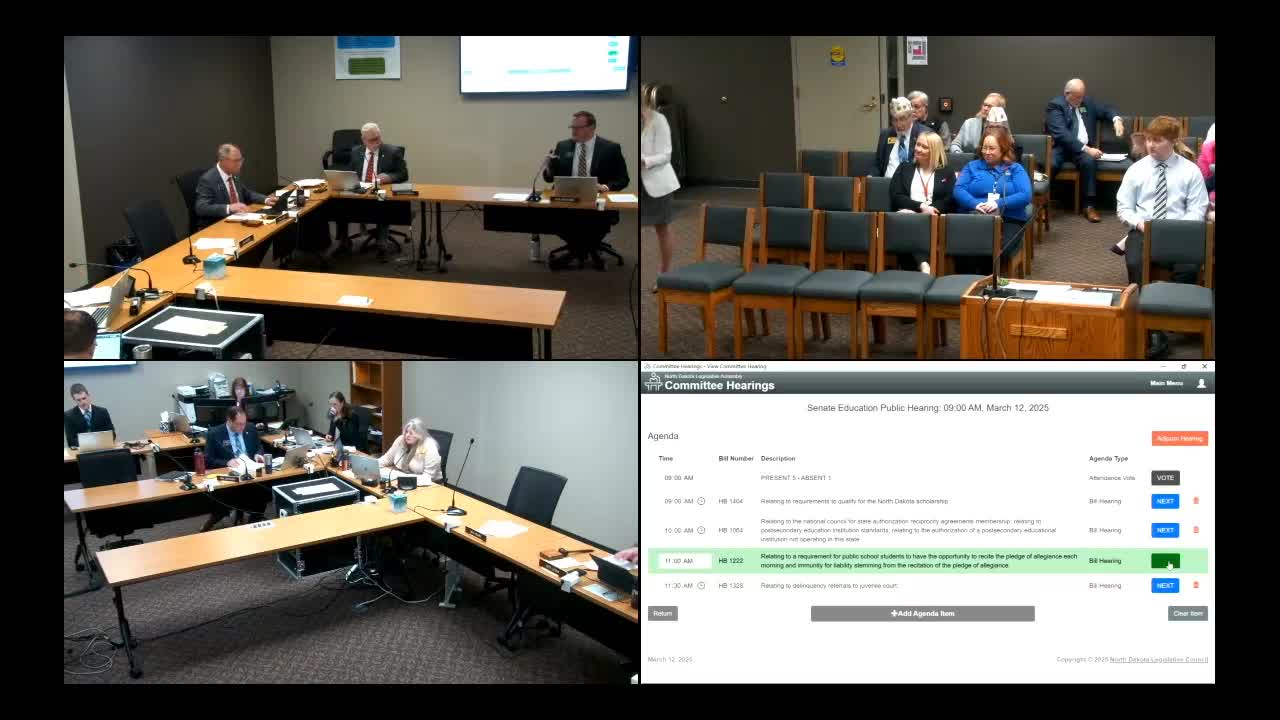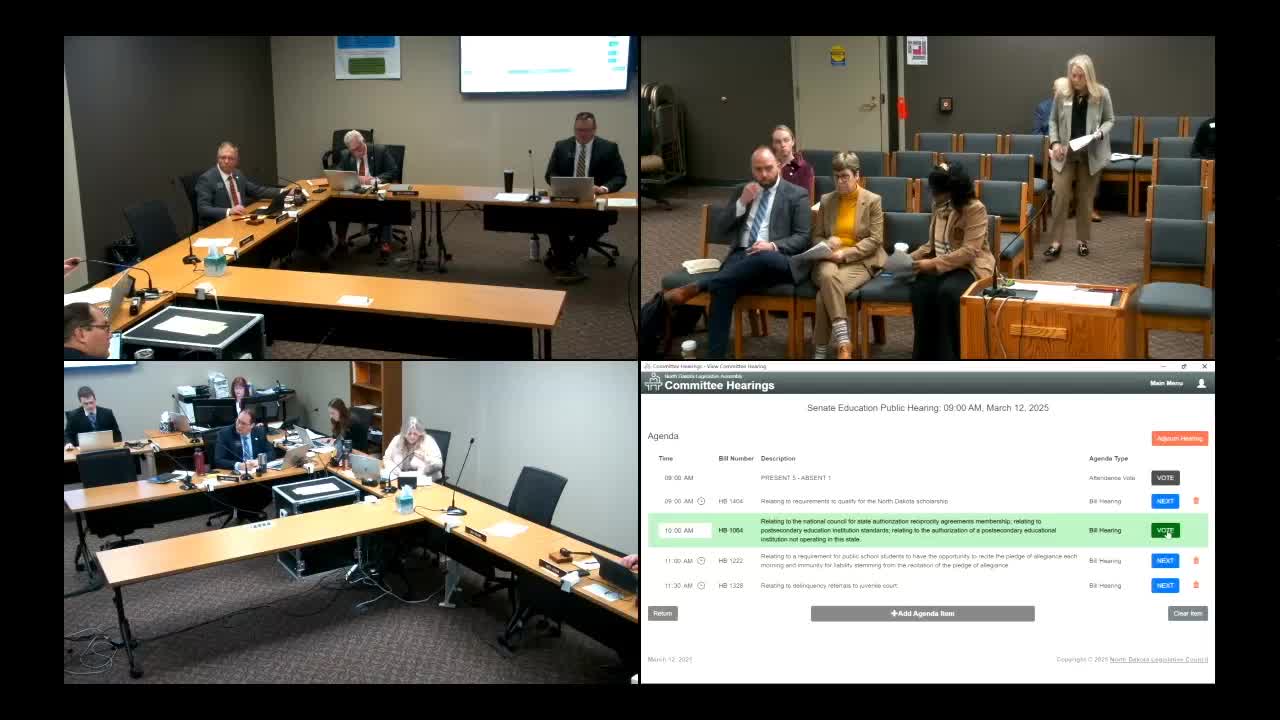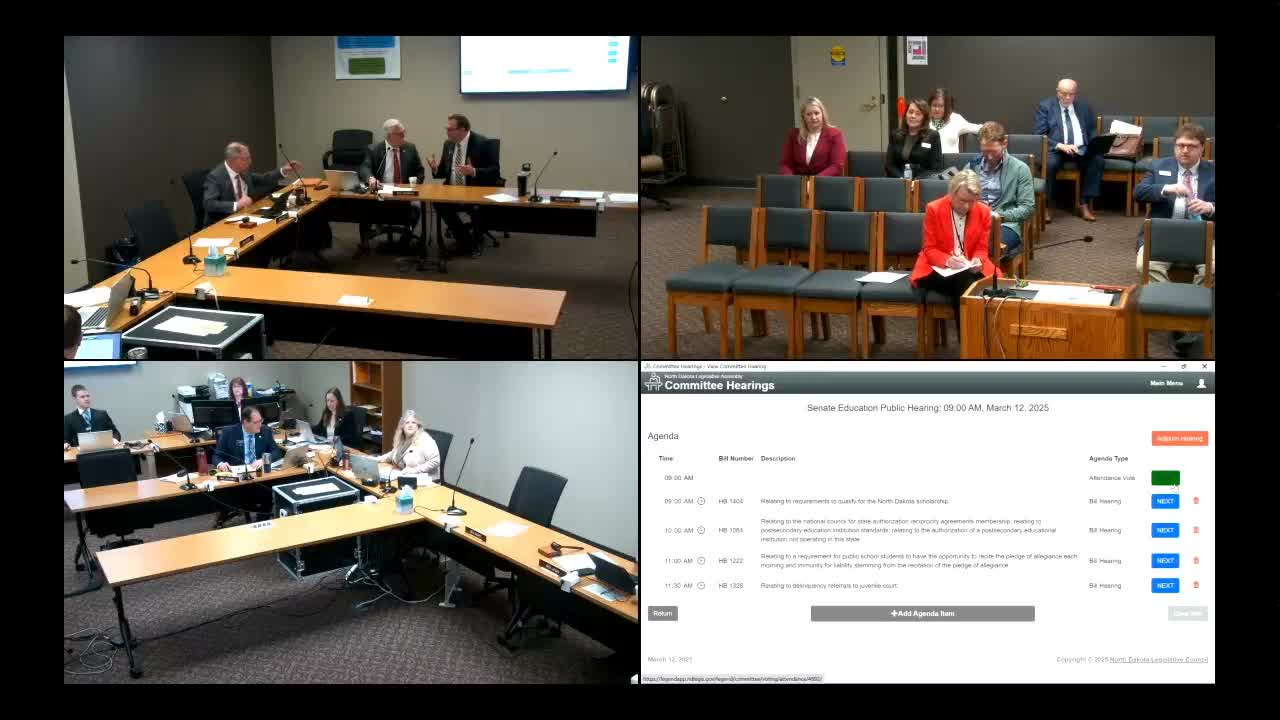Article not found
This article is no longer available. But don't worry—we've gathered other articles that discuss the same topic.

Bill to clarify school referrals to juvenile court advances after advocates and educators back changes

Committee backs bill requiring schools to offer voluntary Pledge of Allegiance each morning

Higher‑ed officials back bill to require NC‑SARA membership for out‑of‑state distance providers

